By Vanessa Wyser-Pratte
A friend texted tonight to ask how I was. Initially, I said something like: "Health management stuff is overwhelming, but I'm trudging through. How are you?" "Say more", she said. This took me aback for a moment, and I paused. But then I thought, ok, let’s go:
"Well, the health thing is the daily grind of ordering Rxs or Chinese herbs, etc. (it varies from week to week). Submitting forms. Coordinating with my disability lawyer on disability forms my rheumatologist needs to fill out (I have my own set). ‘Cause no, no one has cured this yet. And yes, having to do this is an insulting waste of time for myself and my doctor, who, when I gave her the very same forms two years ago said: 'Did they find a cure, and I didn't hear about it?'
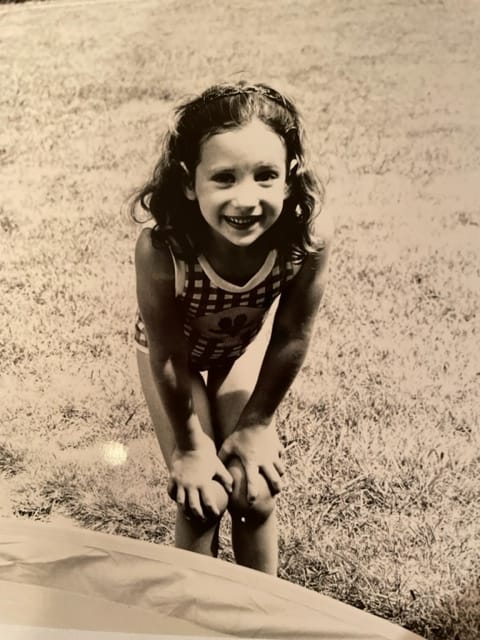
“Then there's going to get blood work done (as I have to every three months) and about 25% of the time I have to tell the phlebotomist NOT to touch the area with his finger where he's going to put the needle into my vein after he's wiped it with rubbing alcohol, because then it is no longer sterile, and I'm immune compromised. But really, he should know better and not do that to anyone. Then I back down after a second attempt at trying to explain that the cotton pad he was using (instead of his finger) to dry the alcohol the 2nd time (can no one wait 3 seconds?!) was not actually sterile, though he said it was. No. It was not. A bit of cotton that's been sitting in the open drawer for who knows how long, being pawed over for use on the last dozen patients is not, by definition, sterile. Then I'm wondering if I'll be ok, ‘cause you know, all sorts of bacteria live on things, and I've been hospitalized with serious bacterial infections in the past1. Both times for WAY more benign, less intrusive, reasons than a needle going through improperly cleaned skin right into a vein. I'll probably be ok, but now I am wondering, should I inject my immune suppressant medication tonight or wait? Except I really need it cause the pain and inflammation this rain causes is so hard to deal with with RA, and I was limiting my intake of it during the holidays to be less likely to catch all the viruses, so I'm in more pain now. Except, also, my right ear drum has been ringing and itchy, and maybe I shouldn't inject because if there is an infection brewing, that drug will only make it harder to cure. And all of this is extra heavy when you have a metal knee implant because of the body's inability to clear infection around a chunk of metal with no vascular system2. And oh, it's Friday and I can't get ahold of the doctor to look at the ear anyway.... And that, is a rather typical day."
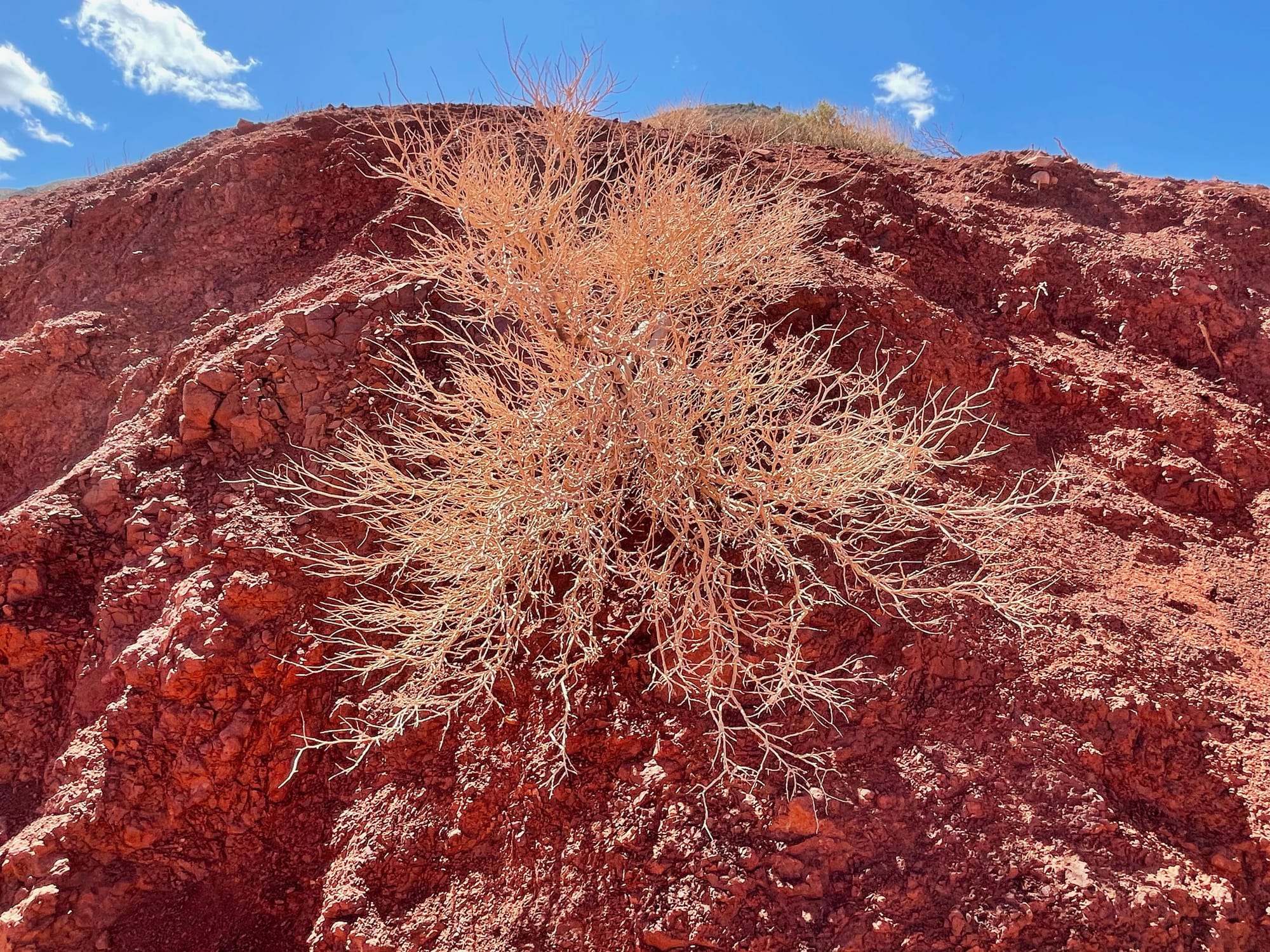
This is intense, yes. I will RARELY go here. And no, every day is not exactly that, but every day is some variation of that.
Every. Single. Day.
The paperwork, the communications, the body self-check-ins regarding symptoms: which to notice and monitor vs. which are normal and I can somewhat ignore. No, I am not a hypochondriac, and I tend to under-react actually (interesting how I feel the need to explain that, isn't it?). In what way do I need to stand up for myself right now? Is it in the parking lot explaining to someone that, indeed, I do have a disability placard for this space, or with a doctor who is dismissing me? What can I do right now to make this pain better? Which joint needs ice, or maybe heat? What other tools are in my tool-kit? Do I have them all at the moment or do I need to go get something? Can I even stand up right now to get anything? Drive to a store? Not likely. Which will have the biggest chance of offering relief with this particular set of variables, in this moment? Yes, it can change on a dime.
These decisions are exhausting.
The finances, the juggling: Should I contact my Chinese herbalist because this monthly prescription was $500 instead of $400, when I know he's dealing with health stuff himself, and by asking him to find a way to shave off that $100 it may work a little less well? Today in addition, it was: how many massages, acupuncture, and osteopath treatments can I get booked? How soon? How can I juggle all of this ‘cause, you know, somewhere in here I also need to do my laundry and feed myself. Am I comfortable spending THAT much $ on it? But what is the option? Feel worse and risk more disease, possibly even more systemic diseases, and therefore even more cost down the road? Take more immune-suppressive drugs whose labels literally, LITERALLY, include among the listed "side effects" (News Flash: There are no such things as “side” effects, just effects) "cancer, lymphoma, and death". Literally. That is what the label says. I do not lie. What would you do in that boat? Your ankles are slowly fusing due to the disease, one often feels like it is getting crushed in that Star Wars trash compactor, many days you struggle to stand, but your immune system, you kind of need it, ya know?
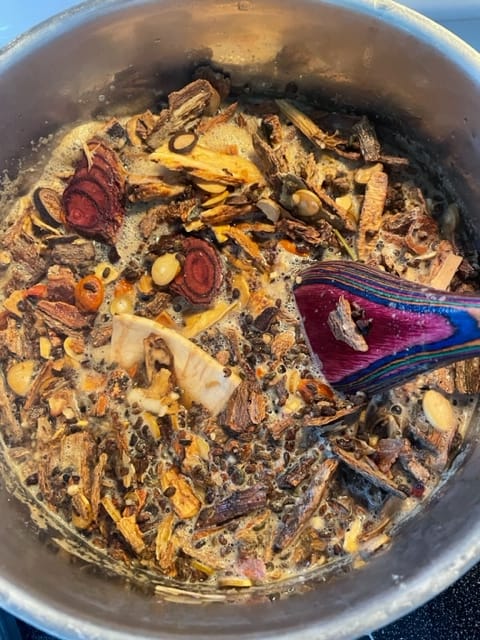
What–would–you–do?
My friend then asked: “What do you need?” I simply started to cry. Because I had no idea how hard it was in the moment. I was just trudging through and getting it done like the Jedi warrior goddess I am. But I realized, in addition to the recognition that I literally need a staff: one person to do the laundry, cleaning, errands we all do, and another to do the bureaucratic disease management, so I personally have the time to get the treatments and integrate them (and maybe enjoy something else), I do want you all to do something:
I want you to ask us to tell you more. Even if you're uncomfortable hearing about the suffering. And the descriptions will at times shock, scare, and unnerve you because this is invisible for many of us and doesn't jive with how I look on the outside.
I want you to listen. Refrain from “Have you tried…?”, but do be curious about our experiences.
I want you to educate yourselves about what auto-immune diseases are. And there are a lot of them, and a LOT of us.
I want you to read about medications like Orencia and Enbrel. Consider that those are offered up by the establishment as our best options.
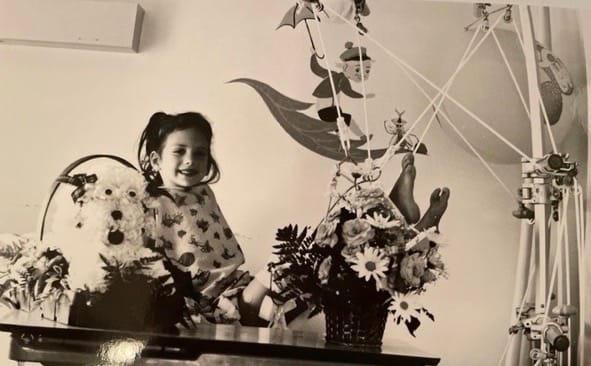
I want you to educate yourselves on how f***ed up this society is that my disability company and my health insurance company (grateful though I am) would much prefer it if I were dead. This is NOT an exaggeration. AND how our entire society marginalizes and dehumanizes our disabled (and the elderly, who should be seen as "our elders". Has a different ring to it, no?).
Educate yourselves on how we with chronic disease get blamed for our financial burdens when the REAL issue is healthcare is so sh*t f**king expensive and there are FEW GOOD OPTIONS for chronic, complicated, degenerative, systemic diseases like this, especially after the toll on the body of 47 years of this. This isn't a couple years of strain. 47 YEARS. Ok, granted, I've only financed the last 27 or so of those years, but I guar-an-tee you I have LIVED all 47, and the disease has gotten so much more complex and expensive the older I get. And I am (ask my friends who ask my advice) one of the most saver-oriented, more financially-savvy types you will ever meet--outside Wall Street. I have my sh*t together. And still, I don't know if I will be ok because I am doing all of this on an income fixed at 60% of a teacher’s salary from 2007.
Include us. Ask us to "Say More".
And THAT, is even more strain, on top of the disease and strain of the pain and isolation itself. Society tells us all, in so many ways, that my life is of less value (Example: countless news articles that mention how the outcomes with Covid now are so much better, and IF they mention the immune-compromised and elders AT ALL, they mention us with a brush-off of the hand: oh well, there is THEM, but that isn't US). Society implies that we did something to bring this on ourselves (at the age of 2?), that we are just not responsible (think again: see pages 1-2), that we shouldn't and can't expect to feel better. That everyone is going to die anyway. (I’m clawing at trying to LIVE. No one has the right to tell me to give up or to decide for me that it is just my time to die–yes, I have heard this one). That this kind of existence is all I am granted, all I am worthy of, and that anyway, I am just sitting around “gathering a paycheck for doing nothing" (yes, I have also heard that one), being fed bon-bons by handsome men (said by a frustrated chronically ill friend whose neighbor was envious because she’d like “to do nothing all day too”).
Society tells us all that if it helps, it is just “enabling” us. Let’s unpack that one. “Enabling” me to...uh, stand? Cook a meal and also be able to do the dishes, maybe even in the same night? Have a tad more physical capacity and energy to spend on something small that brings me joy? That is a rest from the fight, that (by the way), I will be able to do at one-fifth the capacity of the able-bodied who are off, for example, backpacking through Austria while yelling “enabling!” back at me over their shoulders, self-importantly listening to their voices echo off those glorious rocks that this geologist would sure love to visit, oblivious to who or what enabled them to get there. All of this is implied in so many ways. NOOOOOOOO!
I KNOW there is better health out there for me, for us all, RIGHT NOW, and I know exactly what to do to get it--and what it costs. And how our systems would have to be structured for all of us to have access to it (see: basically all of Europe).
I want you, very much, to not judge us for whatever methods we use that work. I mean, if they work, they work. Right? If we feel better and can be a better, more involved and present sister, brother, neighbor, auntie, colleague, and citizen, who F***ING cares what it is. Placebos, too, “work” sometimes. Great, use what works.
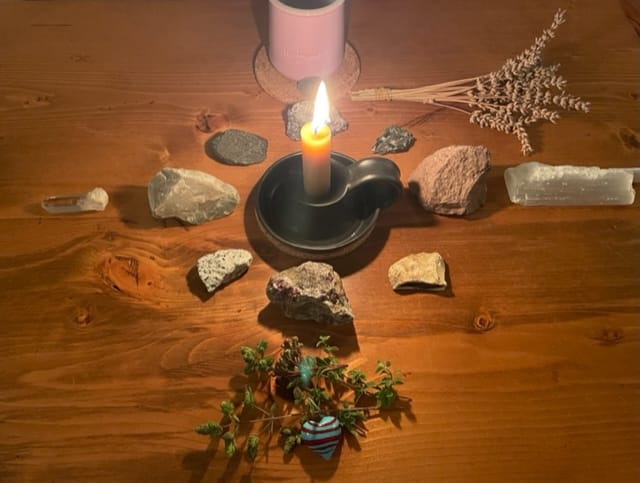
Look, I'm a trained scientist. I LOVE science. I also know it has limits, and what has and has not worked for me, some of which is quite the challenge to the scientifically minded, let me tell you. Why tell us differently? Help us advocate for funding for all these things that work, even if some of it works only for some of us.
Ask anyone with an auto-immune disease of more than five to ten years how many drugs they've had to rotate through because some stopped working, or the "side" effects became too much to bear and caused too many hospitalizations. Why is that acceptable, and fundable, but most modalities that don't work all of the time for all of the people, not?? I promise you none of those modalities list cancer, lymphoma, and death on their labels. Help us get and use the funding in WHATEVER WAYS WE SEE WE NEED. None of this patronizing BS where we are told exactly what we can and cannot use funding for. Trust us.
I want you to advocate for us--all of us--with chronic, incurable, degenerative diseases. How? Sign up on the Arthritis Foundation and the PAN Foundation websites for starters3. Sign their petitions, call your Senators and Representatives when they ask you to. Pay attention to legislative bills coming out of congress, (if there are any for the next two years). Recognize that, as a lyric from my favorite band says: "The rich stay healthy, the sick stay poor".4 And DO SOMETHING ABOUT IT, even if just in your language or thoughts and behaviors. But yes, we need systemic health care, and societal care, change.
Donate–not just to organizations tied up with Pharmaceutical companies. Stay curious. Recognize that part of what keeps this hidden is society tells us to stay quiet, to stay in the shadows, not to describe this. Why? I think we scare you. We are the living embodiment of everyone's inevitable deterioration and death; of loss and grief. I grieve, daily. Don't get me wrong, (and I have to say this because society also says I have to "think positively, be grateful"), I am a stunningly strong woman who will, in every way possible, beat the odds, as I already have. I am determined. And I laugh, and I am grateful, and I do things that bring me joy, when possible. But the loss of what was, just a few years ago, or what could have been, the things I could have done in this lifetime without this burden, is a daily, if quiet and background, grieving.
We are given so many messages to just shoulder this and "pull ourselves up by our bootstraps". Guess what?? I DID. About 50 times over. And my bootstraps are 4 times too short for this situation. And NO, I can't go get other ones. They aren't made long enough, unless you have access to at least $100,000 a year to buy them. And yes, being white, educated, connected to the internet, with a roof over my head, and not born on a reservation, in rural Appalachia, Mississippi, or a war zone (despite the strengths of those communities), gives me a huge leg up in this situation. Yet, are we not supposed to be the most resourced nation on the planet?

None of this is meant as an attack on anyone. Society sends these messages; we internalize them. This is a call to awareness. Yeah, I could go through this and make it a little more "palatable", or as an ex says: "you get further with honey than with vinegar." And you know, I don't care. Because that is too much energy wasted on others’ comfort when I could be using it for my survival—and it is right, and necessary, to be angry. Anyway, I trust you all can handle it. This I will not sterilize, or even sanitize. You can ask today's phlebotomist all about that.
I'm asking for us all, myself included, to start dismantling society's toxic attitudes about disease and disability in our minds, in our conversations, in our questions, in what and WHO we believe has value, in why society supports a dramatically poorer quality of life and health for some, in how the physical space is structured–who it includes and who it leaves out–in who has the power to decide what is funded, and who is funding those deciding, in what does and does not happen from our governments. I'm asking for advocacy, in every way possible, for all of us.
Include us.
Ask us to "Say More".
This essay was originally written January 13, 2023.
Endnotes
1. Including bacterial meningitis from an infected (decades-earlier punctured) earring hole. The bacteria infected the entire ear lobe, and then the inner ear bone that dips down into spinal fluid.
2. Last I checked, the solution for a bacterial infection that gets stuck around a metal knee implant is to have surgery to remove the knee (my PT told me these surgeries look more like heavy construction than surgery), cement the joint, and run IV antibiotics through one’s system for two months. Followed by doing the whole replacement surgery and physical therapy all over again. This is further problematic in that knee joints can only be replaced twice, maybe three times in a lifetime, if the surgeon is really good and if there’s enough bone left from having sawed out other knees. And since I got my joint extremely young (age 26), that would increase the likelihood that I would end up with a non-functioning joint for a good part of my older age.
3. I have my qualms about the Arthritis Foundation as they are enmeshed with Pharmaceutical companies, and someone diagnosed as a toddler, and in the 1970s before current interventions, is underserved by their somewhat denial-level brand: “Live Your Yes!”. But they are a good source of basic information about auto-immune diseases, and they run joyous camps for kids with juvenile arthritis with concurrent information sessions for families. The PAN Foundation is supplying money for my medications and some gas money to and from doctors, and I am eternally grateful, even if I wish they would fund acupuncture and massage, or help with the cost of Medicare Premiums. PAN caps their grant eligibility at income up to 400% of the poverty level. The advocacy of both organizations is important and has made certain aspects of our lives better.
PAN is additionally aware of the problems faced by people in my overlooked level of income: too much to qualify for Medicaid, too little to actually be able to completely care for a complex disease like this one, with this longevity. Though, I can’t imagine this situation is any better if qualifying for Medicaid. And while I am aware that I am not choosing between food, a roof over my head (I have a very generous landlord), and basic access to acupuncture and Chinese herbs, which are, without doubt, mitigating my need for the immune suppressants, I am choosing between how much and how little health I can buy.
4. U2 ((❤️))
Include us. Ask us to "Say More".
Interested in contributing to the Missing Witches Zine? Check out our submissions info and get in touch!
Vanessa was diagnosed at age 2 ½ with juvenile rheumatoid arthritis, “JRA”, (now called juvenile idiopathic arthritis). Her childhood interests in sorting rocks and “making potions” in her backyard evolved into an undergraduate geology degree and decocting Chinese herbs weekly to help manage the RA. She has a Master’s degree in early childhood education, and for 12 years taught elementary or middle school science in NYC. The RA ended her career when she was 35.
While she spent a good part of her first 50 years trying to hide the RA to fit into our unaccommodating society, she is now intent on turning the fire outward, making it take up space everywhere she goes, because everywhere she goes, it is taking up space in her. She is tired of auto-immune diseases being ignored and misunderstood, and of the realities of chronic illness and disability, while living on a fixed income at a young age, being overlooked in a country whose policies are anti-thrival, barely survival.
Never having been one to “accept” things she “cannot” change, Vanessa believes that rage, well-channeled towards stopping injustice, is love. To this end, she is now a very Baby Witch with an altar to, and support from, the dead, home-grown herbs for offerings hanging from her rafters, and an incantation for her actual potion of healing Chinese herbs. She still has rocks in her pocket (and all over) for protection, guidance, and grounding.



